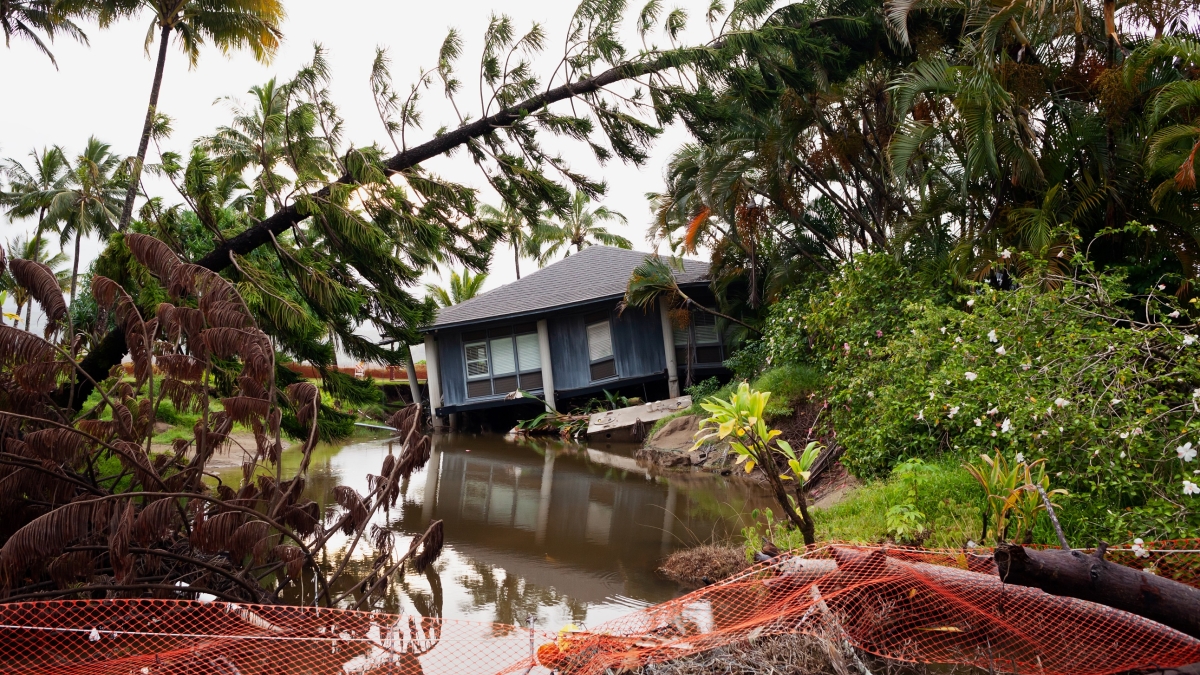ASU receives $6.36M grant to launch Pacific Island research center

Photo courtesy of Shutterstock
The National Oceanic and Atmospheric Administration has announced a five-year, $6.36 million research grant that will launch the Pacific Regional Integrated Sciences and Assessments (Pacific RISA) program as a research center at Arizona State University within the Julie Ann Wrigley Global Futures Laboratory.
This partnership with ASU is the next step in an ongoing effort of the Pacific RISA initiative to support communities in the Pacific region in becoming more resilient to the effects of climate change.
The team will expand their research, advocacy and action from their home base on the Island of Oahu, Hawaii, leveraging support from the East-West Center, the University of Hawaii Water Resources Research Center, various other stakeholders and now ASU, to address the most pressing regional and community-specific climate challenges.
This new partnership with ASU kicks off the next phase of the Pacific RISA initiative. Known as "Pacific RISA IV: Building Equitable and Just Climate Solutions for Pacific Island Resilience to Compound Disasters and Extreme Events," this phase will address pressing regional and community-specific climate challenges in Hawaii and the U.S.-Affiliated Pacific Islands (USAPI), encompassing the territories of Guam and American Samoa, the Commonwealth of the Northern Mariana Islands and the Freely Associated States of the Republic of Palau, the Republic of the Marshall Islands and the Federated States of Micronesia.
“Providing science-based decision support for solving problems facing communities around the globe lies at the core of shaping a habitable future,” said Peter Schlosser, vice president and vice provost of global futures at ASU. “Joining forces with our colleagues at the University of Hawaii and the East-West Center to develop practical solutions for Pacific communities that can proactively anticipate and address critical issues such as, for example, increased frequency and intensity of climate-related extreme events and provide positive outcomes within a global context is an exciting new collaboration and center for the Julie Ann Wrigley Global Futures Laboratory.”
In addition to the establishment of the center within the Global Institute of Sustainability and Innovation, the core research institute of the Global Futures Laboratory, top scientists Victoria Keener and Laura Brewington have joined ASU to serve as principal investigators and directors of the new center. Keener and Brewington will act as a bridge between ASU, the East-West Center and the University of Hawaii, continuing the work that the collaborators have been doing to foster dialogues between researchers and Pacific Island communities.
“With our network of stakeholders from over a decade of use-inspired research, this expanded partnership between ASU, the East-West Center and the University of Hawaii positions the program to implement new adaptation initiatives for climate impacts and extremes across the region,” said Brewington.
Researchers with the project have collaborated closely with natural resource managers, policymakers, local and national governments, and nonprofit organizations to gather data and information, as well as advocate for regional climate needs at national and international scales. Now, the program is well-established in its mission to implement integrated adaptation solutions through actionable science. As a newly established center within the Global Institute of Sustainability and Innovation, the Pacific RISA Phase IV can now begin to address the core question: How can we support and develop sustainable, equitable and just climate solutions that increase Pacific Island resilience to compound disasters and extreme events?
The USAPI is made up of over 300,000 square miles of land and millions of square miles of ocean, making the area extremely diverse culturally, geographically and economically. For this reason, the needs of one area or community will not necessarily track through the entire region. There are a variety of factors that affect how individuals, communities and organizations prepare for and recover from what Pacific RISA researchers refer to as compound events. Compound events are when seemingly isolated events act in combination with one another to produce more serious negative consequences as a result of their co-occurrence.
To work on building community resilience to these compound events, the Pacific RISA Phase IV will host peer-to-peer exchanges among project participants in Hawaii, the USAPI and the national RISA network that will help scale lessons learned and solutions from the local to the regional/national. The project portfolio is integrated and interdisciplinary, and the Pacific RISA’s commitment to climate justice and inclusion is reflected in its evaluation framework that will track equity metrics. Within a diverse region faced with serious climate impacts, economic recovery and limited resources, this phase of the project will strive to maintain and expand its role as a source of use-inspired research and a trusted climate boundary organization.
Under ASU as its leading institution, the Pacific RISA will continue to build upon its already impressive portfolio of projects in Phase IV to conduct use-inspired research and inform climate-adaptation planning and policy that will further strengthen the resilience of Pacific Island communities against compound disasters and extreme events brought on by climate change.
“The Pacific RISA is an internationally recognized leader in applied science to inform climate solutions,” said Dave White, deputy director of the Global Institute of Sustainability and Innovation. “Through partnership with ASU, we will support and enable the center to expand and scale up their impact to meet the growing urgency of the climate crisis.”
More Environment and sustainability

A 6-month road repair that only takes 10 days, at a fraction of the cost? It's reality, thanks to ASU concrete research
While Arizona’s infrastructure may be younger than its East Coast counterparts, the effects of aging in a desert climate have…

Mapping DNA of over 1 million species could lead to new medicines, other solutions to human problems
Valuable secrets await discovery in the DNA of Earth’s millions of species, most of them only sketchily understood. Waiting to be…

From road coatings to a sweating manikin, these ASU research projects are helping Arizonans keep their cool
The heat isn’t going away. And neither are sprawling desert cities like the metro Phoenix area.With new summer records being set…

